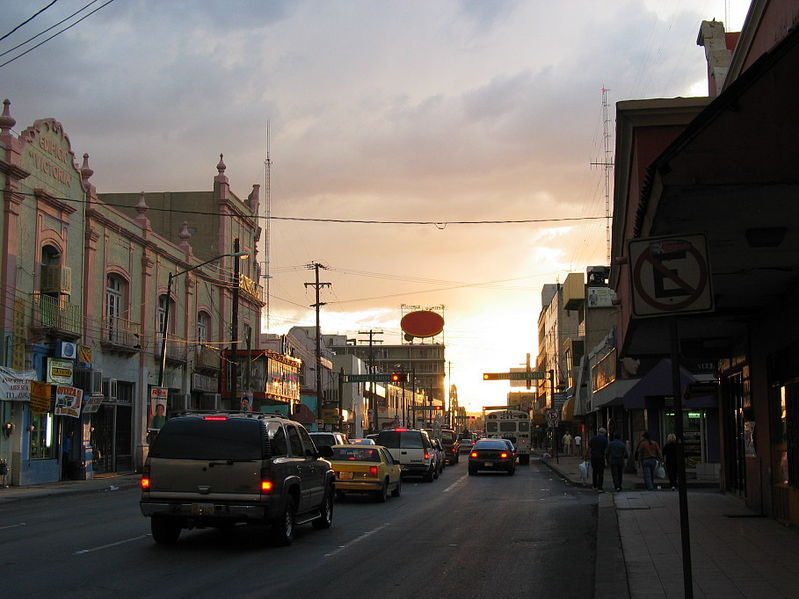
CIUDAD JUÁREZ, Mexico — Telma Pedro Córdoba could have left this blood- and bullet-marked city when she lost her husband to a drive-by shooting in 2009, or when an injury kept her mother from factory work, or when gunmen killed a neighbor in front of a friend’s 3-year-old son a few months ago.
Instead, she has stayed. Her tiny one-bedroom home, decorated with carefully done red and silver stenciling, is shared with her mother, grandmother, sister, younger brother and two children. In local slang, unlike their neighbors whose abandoned homes are now stripped of even windows, they have become a “familia anclada,” a family anchored to Ciudad Juárez.
Not long ago, the phrase hardly existed here in this city of overnight truck drivers and baby-faced factory workers from afar. But over the past several years, the forces of drug violence and recession have reshaped both the city’s character — from loose and busy to tight-knit and cautious — and its demographics.
Decades of growth have been replaced by exodus. The city has lost nearly 20 percent of its population in the past three years, or about 230,000 people, according to one academic estimate. And new government figures and interviews suggest that the men who once arrived in waves are departing in larger numbers than women.
The result is a city with more families like the Pedros: multigenerational, led by women and with several children under 14.
Demographers say the shift has accelerated in the past year not just in Chihuahua, the state where Ciudad Juárez is the biggest city. The proportion of women also grew last year in Tamaulipas, a state that is home to some of the most gruesome recent killings. There, and in Baja California, the state that includes Tijuana, the percentage of families with young children has also spiked, even as it has remained stable nationwide.
“It’s a combination of three things,” said Carlos Galindo, a demographer and adviser to Mexico’s National Population Council. “It’s harder to find a job, migration across the desert is traditionally a thing that men do, and then there’s the violence” driving many men to leave.
For Ciudad Juárez, the imbalance is not without precedent. In the 1970s and ’80s, when electronics manufacturers started the factory, or maquiladora, boom, women flooded the labor market here for low-paying jobs requiring precise handiwork, outnumbering men by five to one on some assembly lines.
Men later followed, pulling equal with women in total population and at factories. Now, though, according to government labor surveys and private sector data, women seem to be edging back into the majority and increasing their presence at maquiladoras.
It is largely a measure of perseverance, not prosperity. In interviews across this sprawling city, women described male departures, or deaths, and a life of adaptation for the families that remained.
Brenda Noriega, 31, lives in the city’s northwestern corner, on a dirt road that abuts the fence separating Ciudad Juárez from El Paso, Tex. On a recent morning, she needed both hands to count the men in her family who had returned to Durango, their home state. “Eight,” she said finally, sitting outside her small blue house with her two children, ages 12 and 13. “Eight uncles and grandfathers have gone in the past year.”
Her husband still has a job, a circumstance that explained why they stayed, she said. Indeed, for many families, work or the lack of it has been as much of a motivator for migration as violence.
The global recession has pummeled this place. From 2008 to the middle of last year, the city’s maquiladoras cut 30 percent of their work force, or about 72,000 jobs.
Some of those positions are returning. José L. Armendáriz Bailón, president of the local maquiladora association, said 20 of the largest factories were rehiring. But unemployment in the city, at 7 percent, still remains above the official national rate of about 5 percent, though either figure would be envied in the United States, and some economists contend that the Mexican average is actually higher than reported.

No Replies to "A Mexican City’s Troubles Reshape Its Families"